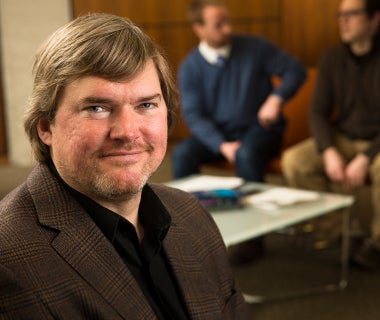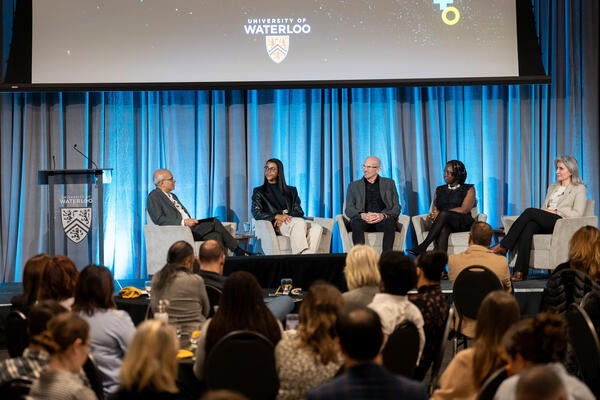
Rethinking Retirement
Waterloo & RBC partnership dispels myths about retirement

Waterloo & RBC partnership dispels myths about retirement
By Christine Bezruki Faculty of Applied Health SciencesThe days of collecting your gold watch and retiring to cottage country are over, says Steven Mock, assistant professor in the Department of Recreation and Leisure Studies.
Retirement is changing, and researchers at the RBC Retirement Research Centre at the University of Waterloo are investigating how people can better prepare for the evolving post-career landscape.
 Professor Steven Mock, Department of Recreation and Leisure Studies, University of Waterloo
Professor Steven Mock, Department of Recreation and Leisure Studies, University of Waterloo
“Retirement is becoming more diverse,” said Mock, one of the researchers associated with the Centre.
“Not only is the population changing, but what retirement looks like is not going to be the same as a one-time transition out of paid work. It’s going to be more complex.”
Some people are working longer, slowly transitioning out of full-time employment by working part-time or going back after being retired. Partly because of financial need, partly because people are living longer, partly because people want to stay active and engaged.
Add an increasingly diverse population to the mix, and retirement has never looked more different.
“There are more single adults, more common-law couples and more same sex couples,” said Mock. Factors such as marital status and sexual orientation can greatly influence the retirement planning process.
Mock’s latest research found that the more lesbian, gay and bisexual individuals were inclined to not disclose their orientation in the workplace, the more they planned.
“This could be because they have a more compartmentalized view of the self,” he said. “They think of themselves as ‘me at work’ and ‘me outside work’.”
Regardless of sexual orientation, certain patterns hold true across the population.
According to Mock, the key to successfully preparing Canadians for retirement is to understand the factors driving retirement planning for different demographics – something the RBC Retirement Research Centre is at the forefront of doing.
“We all have a stake in it. A vested interest,” said Mock. “We are all going to age.”

Read more
Global Futures 2024 launch event engages dialogue and action on the world’s complex challenges

Read more
Navigating science, advocacy and the pursuit of global health equity amidst climate change at COP28

Read more
Here are the people and events behind some of this year’s most compelling Waterloo stories
The University of Waterloo acknowledges that much of our work takes place on the traditional territory of the Neutral, Anishinaabeg and Haudenosaunee peoples. Our main campus is situated on the Haldimand Tract, the land granted to the Six Nations that includes six miles on each side of the Grand River. Our active work toward reconciliation takes place across our campuses through research, learning, teaching, and community building, and is co-ordinated within the Office of Indigenous Relations.